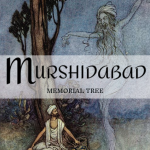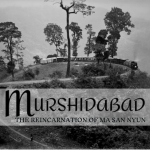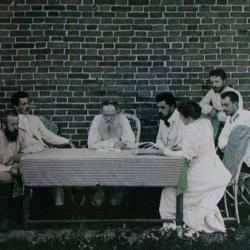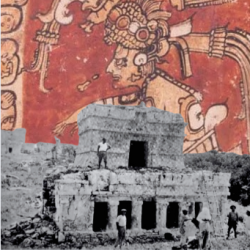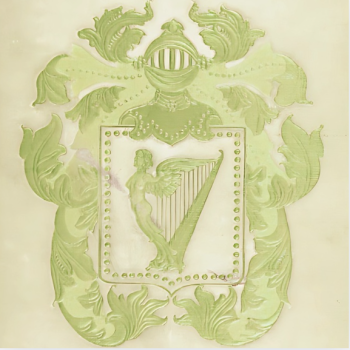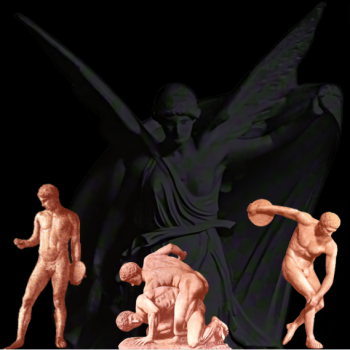PUNAGARAMI.
Charles Johnston
June 1889.
I sat reading in the cool of the gloaming on my veranda, in the fortunate absence of mosquitoes—though big moths insisted on battering themselves like wan ghosts against my lamp. A dark apparition flitted across the grass and—my old friend Maung Hkin stood before me, his hands folded, his eyes fixed on mine. A faint aroma of bazaar tobacco suggested that this was not his ghost.
I looked at him in wonder.
“Why, Maung Hkin! I thought—” I began.
“It is true, Sahib!” the old man said, very apologetically, and with a quaver in his deep, strong voice. “I tried! I tried hard, for a month, or two! Lying, every evening, on clean straw. But—I am healthier than ever! Therefore, Sahib, I have returned. I must go back to jail, to Hari Kishto Babu.”
There was the sting! His voice showed that.
“Oh, but, my good old friend, that is impossible! You know we got pardoned! You have no more business in jail now than I have!”
The old man stared. I went over it again and again. It was in his heart that he had been let out to die. He had not succeeded in dying. Obviously, he must go back again! Finally I got him to grasp the idea. He was distressed.
“But, Sahib,” he asked tremuously, “where shall I go? I cannot die in the village! I cannot go back to the jail. What is to become of me? I must go somewhere, Sahib! You would not have shame put on my head before those Bengalis?”
I interrupted, in the flash of a sudden inspiration.[1]
“Maung Hkin!” “You are a follower the Good Law?”
The old Burman bowed reverently.
“Even so, Sahib. And of the noble Eightfold Path.”
“Good! Then you know what Punarjanma is?—Reincarnation—He who dies, shall be born again?”[2]
“Yes, Sahib! In a new body…”
“Not always in a new body, Muang Hkin!—There was Visvâmitra, of the Warrior-caste, who was reborn a Brahman—in the same body! And the sons of Nābhāgarishṭa, who, being of the Merchant-caste, were reborn as Brahmans, and the children of Dhrishta—”[3]
The old man was impressed by my authority.
“Is it so written in the Scriptures, Sahib?”
“It is so written, Maung Hkin!”
“What, then, is the Sahib’s order?”
This, Maung Hkin. It was revealed to you that your time was up; that you should go to your village and die?”
“Even so, Sahib…It seemed to me it was so revealed.”
“And the Law of Karma is sure?”
“The Law is sure!”
“Very well, Maung Hkin. This is the order. You must die, and be reborn in the same body—like Visvâmitra and the rest. And then you must remain with me as my servant.”
The old man blinked. Then he ruminated on it. It gradually began to his fancy. And it suited my book exactly, as one of our own Punaswami wanted to go home to Madras. Then idea came to me, suggested by the classic name of the departing butler.
“Your new name is ready for you, Maung Hkin! It is Punaragami—He who comes again. A very auspicious name!”
At first the old man was suspicious.
“Not a Bengali name, Sahib?”
“No! Pure Sanskrit. The tongue the Lord Buddha knew.”
With bowed head, the old man thought it out.
“It shall be even as the Sahib orders. The new name again, Sahib?”
“Punaragami—He who comes again.”
“It is well, Sahib! I, who was Maung Hkin, am now Punaragami, reborn in the same body!”
He did not try to quote my precedents, but I could see he had them impressively in mind, feeling that he was one of a highly distinguished gathering.
Presently, he began to laugh softly to himself, evidently greatly relieved. He had not really wanted to go to jail and Hari Kishto Babu, but, honest old chap that he was, he thought he was in duty bound, since he had not made a success of dying.
So I let him sit awhile, and smoke one of my cigarettes, and gossip of his journey, and then I had him snugly installed in the servants’ quarters. The departing Punaswami had been to Mandalay and spoke a little Burmese, which delighted the old man, and they became fast friends. He did not reflect that that tongue now be longed to his past incarnation. I did not remind him.[4]
← Table Of Contents →
SOURCES:
[1] Johnston likely recalled Max Müller’s Chips From A German Workshop in which Müller writes: “The priests never aspired to royal power. ‘A Brahmin,’ they say, ‘is not fit for royalty.’ (Satapatha-brâhmana V. 1, 1, 12.) They left the insignia of royalty to the military caste. But woe to the warrior who would not submit to their spiritual guidance, or who would dare to perform his sacrifice without waiting for his Samuel! There were fierce and sanguinary struggles between the priests and the nobility, before the king consented to bow before the Brahmin. In the Veda we still find kings composing their own hymns to the gods, royal bards, Râgarshis, who united in their person the powers both of king and priest. The family of Visvâmitra has contributed its own collection of hymns to the Rig-veda, but Visvâmitra himself was of royal descent, and if in later times he is represented as admitted into the Brahmanic family of the Bhrigus—a family famous for its sanctity as well as its valour—this is but an excuse invented by the Brahmans, in order to explain what would otherwise have upset their own system.” [Müller, Friedrich Max. Chips From A German Workshop: Essays On Mythology, Traditions, And Customs, Vol. II. Longmans, Green, and Co. London, England. (1868): 334.] Concerning the Vishvâmitra, Johnston himself would write: “This Vishvâmitra, son of Gâdhi, King of Kanyakubja, or Kanauj, is one of the most famous of Vedic heroes, and Seer of the Third Mandala of the Rg-Veda.” [Johnston, Charles. “The Red Rajputs.” The Imperial And Asiatic Quarterly Review And Oriental And Colonial Record. Vol. V., No. 4. (October, 1893): 382-399.]
[2] “Punarjanma. (Sk.) The Power of evolving objective manifestations; motion of forms; also re-birth.” Blavatsky, H.P. Theosophical Glossary. The Theosophical Publishing Society. London, England. (1892): 264.
[3] “The Harivaḿsa (section xi. verse 658) tells us that ‘two sons of Nābhāgarishṭa, who were Vaiśyas, became Brahmans.’ (Nābhāgārishtaputrau dvau vaiśyau brāhmaṇatām gatau.) (4.) Dhrishta.—Of him the Vishnu Purāna relates, iv. 2, 2: Dhrishtasyapi Dharshṭakam Kshattram samabhavat: ‘From Dhrishta sprang the Dharshṭaka Kshattriyas.’ The Bhagavata Purāņa says, ix. 2, 17: Dhrishṭad Dharshṭam abhūt Kshattram brahma bhūyam gatam kshitau. ‘From Drishta were descended the Dharshța Kshattriyas, who obtained Brahmanhood on earth.” Muir, John. Original Sanskrit Texts On The Origin And History Of The People Of India. Trübner & Co. London, England. (1872): 223.
[4] Johnston, Charles. “The Reincarnation Of Maung Hkin.” The Atlantic Monthly. Vol. CXVI, No. 5. (November 1915): 616-624.


